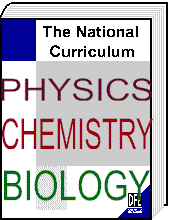![]()
CURRICULUM
KS4 SCIENCE
|
The separate sciences are studied at the S.J.H.S. at KS4, which follows on from the KS3 course taught in Years 7 to 9. Though
these courses will go into greater depth and extend the knowledge of the
students, they will also involve some revision of the previous years’
work. All
students must choose at least one Science subject. The Sciences SC1
INVESTIGATIONS / EXPERIMENTATION SC2 LIFE PROCESSES AND LIVING THINGS SC3
MATERIALS AND THEIR PROPERTIES
SC4
PHYSICAL PROCESSES
.....................
...............
Each subject involves Practical Assessment (SC1) which accounts for 25% and takes place during normal laboratory periods but may involve some preparation at home. It is assessed internally by the Science teachers and then sent to England for moderation at the end of April. Four criteria are involved: planning, carrying out, evaluating and concluding various types of Practical Investigations in each separate science. Recently purchased highly accurate data logging sensors connected to the computers can make data collection and manipulation much easier for every student, and also keep the keen scientist up to date with modern industrial methods. The remaining 75% within each subject is examined as part of the National Examinations (London Board) at the end of the two year courses. This involves two written papers for each subject covering all theoretical aspects within each subject. Structured questions are used within the written papers which also take account of differing levels of ability by adopting a two tiered entry. In all three subjects, students will be entered for the tiers of the examination suited to their ability. This is decided after the mock examination. Only two tiers exist: FOUNDATION TIER (Grades G to C) and HIGHER TIER (Grades D to A). BIOLOGY
(SC2) The
Course 1. The subject core (50%) · Life processes and cell activity · Humans as organisms · Plants as organisms · Variation, inheritance and evolution · Living organisms in their environment 2. Subject extensions (25%) · Micro organisms and disease in humans · Biotechnology in food production 3. Practical Assessment (25%) – see prior information. Aims · To enable students to acquire a systematic body of biological knowledge and develop an understanding of the concepts, principles and application of Biology through investigative techniques. · To stimulate curiosity, interest and enjoyment in Biology. · To promote awareness of the applications of Biology which may be both beneficial and detrimental to the individual, the community and the environment. CHEMISTRY
(SC3) The
Course 1. The subject core (50%) · Classifying materials, eg. particles and atomic structure · Changing materials, eg. representing reactions · Patterns of behaviour, eg. rates of reaction 2. The subject extension (25%) · Chemistry in the laboratory, eg. tests for ions · Chemistry in industry, eg. making metals useful · Chemistry and the environment, eg. carbon cycle 3. Practical Assessment (25%) – see prior information. Aims · To acquire a systematic body of scientific knowledge and develop an understanding of Chemistry, including its powers and limitations. · To develop practical and investigative skills. · To develop an understanding of the nature of chemical ideas and activity. · To develop an understanding of the technological and environmental applications and the economic and social implications of Chemistry. PHYSICS
(SC4) The
Course at SJHS 1. The subject core (50%) · Electricity and magnetism · Forces and motion · Waves · The earth and beyond · Energy resources and energy transfer · Radioactivity 2. The subject extension (25%) · Communications · Particles 3. Practical Assessment (25%) – see prior information. Aims The syllabus aims to give students opportunities to: · Acquire a systematic body of scientific knowledge and develop an understanding of Physics, including its powers and limitations. · Develop experimental and investigative abilities. · Develop an understanding of the nature of Physics ideas and activity and the basis for scientific claims. · Develop an understanding of the technological and environmental applications of Physics and of the economical, ethical and social implications of these. It is important that students possess some mathematical ability before considering the Physics course since it involves frequent numerical concepts in all topic areas. THE NATIONAL CURRICULUM
CLICK ON SUBJECT BACK TO
|
![]() |
sign the guestbook
|
sign the guestbook
![]()
get your free guest book
 National
curriculum
National
curriculum




